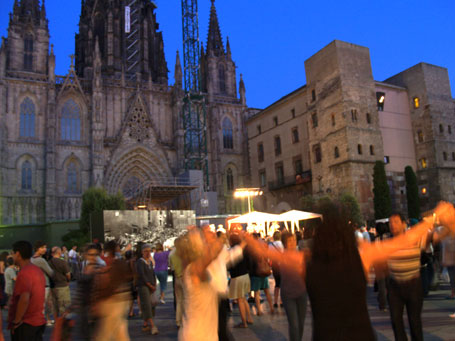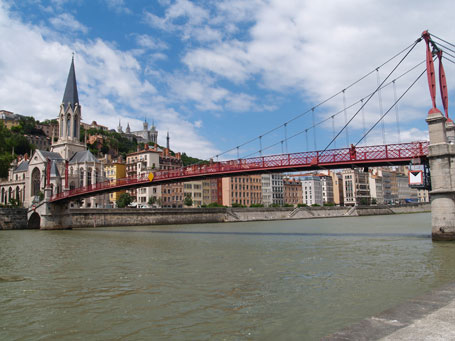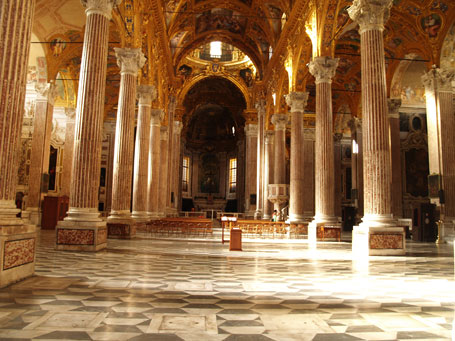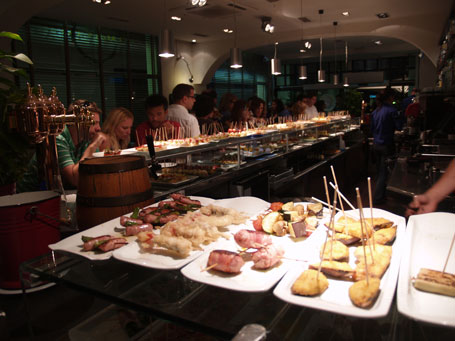Europe Road Trip: Driving a 14-Day Loop through France, Spain and Italy
By Tom Kagy | 09 Oct, 2025
A two-week road trip is just long enough to discover southwestern Europe's choicest summer destinations.
If that daydream of summertime Europe has ripened to perfection, there’s no better way to squeeze out maximum juice than a road trip. With any ground invasion of Europe the first decision, of course, is what to do with France.
French Decision
Four-fifths the size of Texas, France is the unavoidably broad waistland (not wasteland, mind you) between Spain and Britain to the west and Germany, Switzerland and Italy to the east. It is the heart of any route both coming and going. So a two-week loop that doesn’t demand non-stop driving is dictated by what part of France matters to you. If it’s Paris, your northern terminus will likely be London, Amsterdam or possibly Frankfurt. If it’s the warm south, you will probably draw the line at Lyon or Geneva and focus on Provence, northern Spain and northern Italy.
Having seen plenty of Paris but not enough of Provence on a prior trip, we opted for a southern loop that would take in northern Spain, northwestern Italy and the western tip of Switzerland, along with the attendant crossing and recrossing of Provence and the Riviera.

Several hundred locals and tourists come together spontaneously in several large circles to perform a traditional Catalan dance in Plaça de la Seu (Plaza of the Seat of the Diocese), the central plaza in Barcelona’s Gothic Quarter. Barri Gotic’s half dozen plazas attract a steady stream of revelers and tourists on summer evenings.
We knew that too much time lying on even the loveliest beach or strolling that same timeless promenade once too often can be a form of torture. On the other hand, fatigue can dull the senses as a road trip nears the end of the second week. All in all, we decided to err on the side of feeling rushed and fatigued rather than rested and bored. We spaced each day’s drive to allow long lunch and afternoon stops when both energy and light are abundant. As seasoned road trippers know, many of the most memorable stops aren’t towns located at the correct intervals or boast great or even very good hotels.
We began and ended our loop in Barcelona, with nights in Montpelier, Cannes, Genoa, Geneva, Avignon, Toulouse, San Sebastian and Zaragoza. We front-loaded the two-nighters to Cannes, Genoa and Geneva on the belief that they were worthy of extended stops. We were wrong about Geneva, but more on that later.
You might also want to check out my Tips for Hassle-Free Driving in Europe.

This pedestrian-friendly bridge on the Saône River links atmospheric Old Lyon with a laid-back entertainment district. Our afternoon in Lyon turned out to be the trip’s biggest pleasant surprise.
Asian Americans in Europe
We detected no ill will on account of our Asian faces. Even the remotest small towns and expressway service areas held only friendly natives. Asian Americans seem to comprise a high percentage of Americans traveling in Europe. Many waiters and clerks assumed that we were Americans rather than from Asia. We didn’t see many tourists from Asia but we did run across several Asian American groups, including an entire busload at the excellent Las Palomas buffet in Zaragoza, Spain.
Asian restaurants and merchants abounded in nearly every city. Near Genoa’s Via Soziglia three of the four boutiques we entered were operated by young Asians. Sushi, Chinese and Indian restaurants were commonplace, even in districts catering mostly to locals. On Barcelona’s crowded Ramblas and in Geneva’s hotel district a third of restaurants were Indian or Indian-operated. We ran across Vietnamese and Korean restaurants in the most unlikely places. Very late on a stormy Monday night in Cannes — despite our resolve to eat as native as possible — the most appealing restaurant we found open was a sleek sushi bar with a menu that included traditional Korean dishes.

The 16th-century Basilica della Santissima Annunziata del Vastato is one of countless grand historic structures that line the streets of Genoa’s lively historic downtown.
Food and Nutrition
At least as evidenced by eateries that abounded in our favorite destinations, the European diet is heavy on bread and starches and light on protein, veggies and calcium. By the time we left Europe our fingernails had turned brittle. We might also have been suffering from scurvy if we didn’t make a late push to order big salads as a main course at least one meal a day. Europeans skimp on greens on dinner entrees and on vegetarian pizzas, paninis and pastas.

The Bilbao-Berria is a big popular tapas bars in Barcelona’s Gothic Quarter. It features a larger selection of tapas and at lower prices than most. Its location in Plaça Nova is within sight of Plaça de la Seu and the famous Catedral de Santa Eulalia.
The other problem, of course, is the overabundance of patisseries, boulangeries and gelaterias. And those starchy and sweet snacks and desserts tend to get washed down with rich coffees loaded with calcium-depleting caffeine. We eventually stayed away from the bread provided with each meal and made a point of picking up a quart of milk and fruits from a market before retiring to the hotel. At the hotel breakfast buffets we made sure to fill up on milk, yogurt, eggs, juices, fruits and veggies as preparation for a day of tourist food.
"Near Genoa's Via Soziglia three of the four boutiques we entered were operated by young Asians."

The Basque Coast resort of Biarritz was one of two places on our trip for which we wished we had alotted more time.
Asian American Success Stories
- The 130 Most Inspiring Asian Americans of All Time
- 12 Most Brilliant Asian Americans
- Greatest Asian American War Heroes
- Asian American Digital Pioneers
- New Asian American Imagemakers
- Asian American Innovators
- The 20 Most Inspiring Asian Sports Stars
- 5 Most Daring Asian Americans
- Surprising Superstars
- TV’s Hottest Asians
- 100 Greatest Asian American Entrepreneurs
- Asian American Wonder Women
- Greatest Asian American Rags-to-Riches Stories
- Notable Asian American Professionals

